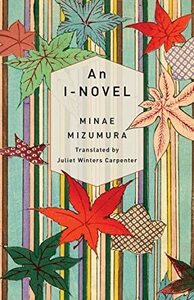Take a photo of a barcode or cover
I feel like this novel loses its way translated to English. It’s very atmospheric and part of what the novel does is weave in English and Japanese. That effect falls flat when the English phrases from the original novel are merely in bold font.
Otherwise, 60 pages in and I have the day-in-the-life gist. Nothing much is going to happen that I care about. Or, it’s not worth the wading through 300+ pages on inner monologue and conversations with the main character’s sister.
Otherwise, 60 pages in and I have the day-in-the-life gist. Nothing much is going to happen that I care about. Or, it’s not worth the wading through 300+ pages on inner monologue and conversations with the main character’s sister.
Beautiful artwork! I enjoyed looking at the photos, but the plot was too slow. After all these months I’ll put it in my read pile but really I got through 2/3 of it.
I'm biased, insofar as books about language and belonging are basically my catnip. But they can also be a bit formulaic, except that An I-Novel is the right opposite of that. I think when you deal with questions like homesickness, not belonging and immigration, it can be so easy to fall for the trap of nostalgia, making the prose saccharine and unrealistic. It's also entirely possible to begin looking at yourself from the outside, especially when you've been alienated for so long, and in adopting someone else's gaze, you fall into dangerous tropes.
I don't even know what I'm listing all these things when again, An I-Novel manages to sidestep them all, delivering instead a poignant story about not feeling at home anywhere, and how the intense desire for belonging, for the place you've left behind (perhaps in the guise of something akin to "cruel optimism" ) can ruin your present, squander your potential, as the ghost of the life you never had haunts you to inaction.
I don't look for relatability as such in my books, but damn if this one didn't get me.
The translation is incredibly well-done, but this book made me wish I was further along with my Japanese, so I could read it in its original. I mean, it's kind of hard to replicate the experience through font from what I saw in the sample page from the Japanese.
I don't even know what I'm listing all these things when again, An I-Novel manages to sidestep them all, delivering instead a poignant story about not feeling at home anywhere, and how the intense desire for belonging, for the place you've left behind (perhaps in the guise of something akin to "cruel optimism" ) can ruin your present, squander your potential, as the ghost of the life you never had haunts you to inaction.
I don't look for relatability as such in my books, but damn if this one didn't get me.
The translation is incredibly well-done, but this book made me wish I was further along with my Japanese, so I could read it in its original. I mean, it's kind of hard to replicate the experience through font from what I saw in the sample page from the Japanese.
Hacía tiempo que una novela no me rompía los esquemas como esta de Minae Mizumura. Gira alrededor de un día decisivo haciendo balance de 20 años de exilio: las reflexiones de la autora sobre el desarraigo, la lengua propia, las distancias culturales, el racismo multidireccional, la soledad, la creación, los lazos familiares, la idealización de las raíces... son de una honestidad desgarradora. ¿Dónde encajar cuando no te sientes de ninguna parte?
I received an electronic ARC of this book via NetGalley for review.
This is a lovely translation of a book that, while not entirely to my taste, was absolutely worth reading.
The statement that the novel takes place over the course of a single day in the 1980s is both true and false--the "current" timeline of the novel is one snowy day in which the narrator does not leave her apartment, but the events of the novel span the previous 20 years (and a bit more). It's an interesting story, and while somewhat meandering and not particularly plot-driven, it's enjoyable and avoids becoming confusing.
More than anything else, it's a novel about identity and language. The note at the beginning discusses the challenge of translating this particular novel, which apparently in the original is a mixture of Japanese and English that uses a somewhat unusual format to facilitate this stylistic choice. It's really fascinating, and taken together with the translated text of the novel is very thought-provoking on the interplay between English and other languages and what it means for writers who do not write in English.
This is a lovely translation of a book that, while not entirely to my taste, was absolutely worth reading.
The statement that the novel takes place over the course of a single day in the 1980s is both true and false--the "current" timeline of the novel is one snowy day in which the narrator does not leave her apartment, but the events of the novel span the previous 20 years (and a bit more). It's an interesting story, and while somewhat meandering and not particularly plot-driven, it's enjoyable and avoids becoming confusing.
More than anything else, it's a novel about identity and language. The note at the beginning discusses the challenge of translating this particular novel, which apparently in the original is a mixture of Japanese and English that uses a somewhat unusual format to facilitate this stylistic choice. It's really fascinating, and taken together with the translated text of the novel is very thought-provoking on the interplay between English and other languages and what it means for writers who do not write in English.
Minae Mizumra’s An I-Novel, which takes place over the course of a single day in 1981, is more of an experimental art project than a traditional novel. And here’s the thing about that day – nothing really happens.
Semi-autobiographical, we enter Minae’s consciousness as she is awoken from a cocoon of self-imposed isolation, holed up in her cavernous apartment in the university town in which she’s been putting off completing her PDH for years, by a phone call from her sister. Whereas in a work of fiction, her sister might be calling with some piece of drama or something, Minae’s sister is really just calling for a chat. This begins to spring Minae into a deep reflection of her family’s exodus from Japan when she was just a girl, what “home” really means, and her lifelong dream of returning, existing in contrast to her mixed feelings about how she’s and her sister have become Americanized/are not ‘other’ in their homeland.
Originally written in Japanese in 1995 (though it was marketed as a “bilingual” novel as it was interspersed with English), it was translated into English by Juliet Winters Carpenter in 2021, which makes it a perfect read for women in translation month. While I appreciated that it was doing something different, I had a difficult time feeling engaged with any of the characters. Minae maintains a distance as both an author and a character, even as she describes her own life, which I think was intentional, but felt cold to me and underserved what could have been an amazing exploration into the changing meaning of home.
Semi-autobiographical, we enter Minae’s consciousness as she is awoken from a cocoon of self-imposed isolation, holed up in her cavernous apartment in the university town in which she’s been putting off completing her PDH for years, by a phone call from her sister. Whereas in a work of fiction, her sister might be calling with some piece of drama or something, Minae’s sister is really just calling for a chat. This begins to spring Minae into a deep reflection of her family’s exodus from Japan when she was just a girl, what “home” really means, and her lifelong dream of returning, existing in contrast to her mixed feelings about how she’s and her sister have become Americanized/are not ‘other’ in their homeland.
Originally written in Japanese in 1995 (though it was marketed as a “bilingual” novel as it was interspersed with English), it was translated into English by Juliet Winters Carpenter in 2021, which makes it a perfect read for women in translation month. While I appreciated that it was doing something different, I had a difficult time feeling engaged with any of the characters. Minae maintains a distance as both an author and a character, even as she describes her own life, which I think was intentional, but felt cold to me and underserved what could have been an amazing exploration into the changing meaning of home.
In the US media, I often see people talking about whether a typical voter would like to have a beer with a presidential candidate. This is a useful metric for me and books. I would not like to have a coffee with Ms Mizumura. I read 20 pages of this in Japanese, before resorting to the English version, and I think she has a remarkable command of the Japanese language. But in regards to the content, I wished she had made it shorter. Much shorter. It seemed as if she thought she could make a novel by simply writing out in well-crafted Japanese the experiences she has had and some thoughts about them. Forgive me, but she has not had a life interesting enough to do that. She also has no sense of humor, is judgmental, and is even often quite pedestrian in this book. I don't feel that reading it was a waste of my time, but it was not really a pleasure, nor did it do much for me.
In the US media, I often see people talking about whether a typical voter would like to have a beer with a presidential candidate. This is a useful metric for me and books. I would not like to have a coffee with Ms Mizumura. I read 20 pages of this in Japanese, before resorting to the English version, and I think she has a remarkable command of the Japanese language. But in regards to the content, I wished she had made it shorter. Much shorter. It seemed as if she thought she could make a novel by simply writing out in well-crafted Japanese the experiences she has had and some thoughts about them. Forgive me, but she has not had a life interesting enough to do that. She also has no sense of humor, is judgmental, and is even often quite pedestrian in this book. I don't feel that reading it was a waste of my time, but it was not really a pleasure, nor did it do much for me.
emotional
reflective
slow-paced
Plot or Character Driven:
Character
Strong character development:
Complicated
Loveable characters:
No
Diverse cast of characters:
Yes
Flaws of characters a main focus:
Yes




